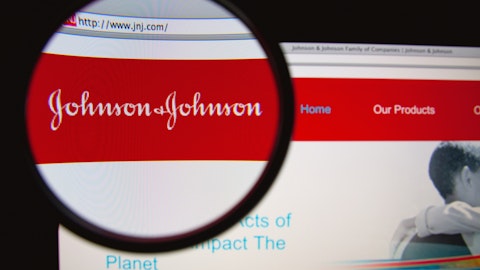3. Costco Wholesale Corporation (NASDAQ:COST)
Bridgewater Associates’ Stake Value: $519,806,000
Percentage of Bridgewater Associates’ 13F Portfolio: 3.02%
Number of Hedge Fund Holders: 57
Costco Wholesale Corporation (NASDAQ:COST) is a merchandise retailer of dry groceries, appliances and electronics, health and beauty products, hardware, and sporting goods, among others.
In the third quarter of 2020, Ray Dalio acquired a stake in Costco Wholesale Corporation (NASDAQ:COST), and in Q4 2021, the billionaire added 8% to his position, holding 915,635 shares worth approximately $520 million.
Costco Wholesale Corporation (NASDAQ:COST) published its Q4 results on March 3, posting earnings per share of $2.92, topping estimates by $0.18. The quarterly revenue jumped roughly 16% year-over-year to $51.90 billion, surpassing consensus by almost $396 million. Deutsche Bank analyst Krisztina Katai raised the price target on Costco Wholesale Corporation (NASDAQ:COST) to $491 from $482 and kept a Hold rating on the shares on March 7, following the Q4 results.
A total of 57 hedge funds were bullish on Costco Wholesale Corporation (NASDAQ:COST) at the end of December 2021, up from 55 funds in the quarter earlier. Fisher Asset Management is the biggest shareholder of the company, with more than 4 million shares worth $2.3 billion.
Here is what Ensemble Capital has to say about Costco Wholesale Corporation (NASDAQ:COST) in its Q1 2021 investor letter:
“We saw these dynamics at play in the Fund. Some of the worst-performing stocks this quarter were among our best performers in Q1 2020. Another example was the market’s reaction to Costco Wholesale (1.5% weight in the Fund) during the quarter. From December 31, 2020 to March 8th, Costco shares declined 17% and dropped below their pre-pandemic high. The common rationale offered by sell-side analysts was that Costco would face difficult one-year “comps” (i.e. same-store sales, which compare sales from stores open for at least a year). Because so many consumers rushed to Costco ahead of shelter-in-place and subsequent quarantines, it will be harder for Costco to meaningfully beat those results when compared year-over-year. That may indeed be true, but we struggle to understand how Costco could be “less valuable” than it was a year earlier when it concurrently increased its membership base by over 7%, or 3.9 million members. With membership renewal rates around 90%, the vast majority of the new customers Costco brought in last year will be around for years to come.
Analysts also complained about Costco raising its already industry-leading minimum wage to $16/hour, with an average “effective” pay of $23-$24/hour when you include overtime and bonuses. Costco paying its employees “too much” has been a common gripe of Wall Street analysts for at least two decades. While the extra pay does indeed impact short-term profit margins, it also serves to make Costco more durable, as its flywheel (i.e. a virtuous value cycle) starts with happy employees. A 20-year chart of Costco stock price is evidence that this strategy works and we’re confident that it will continue to work.”





